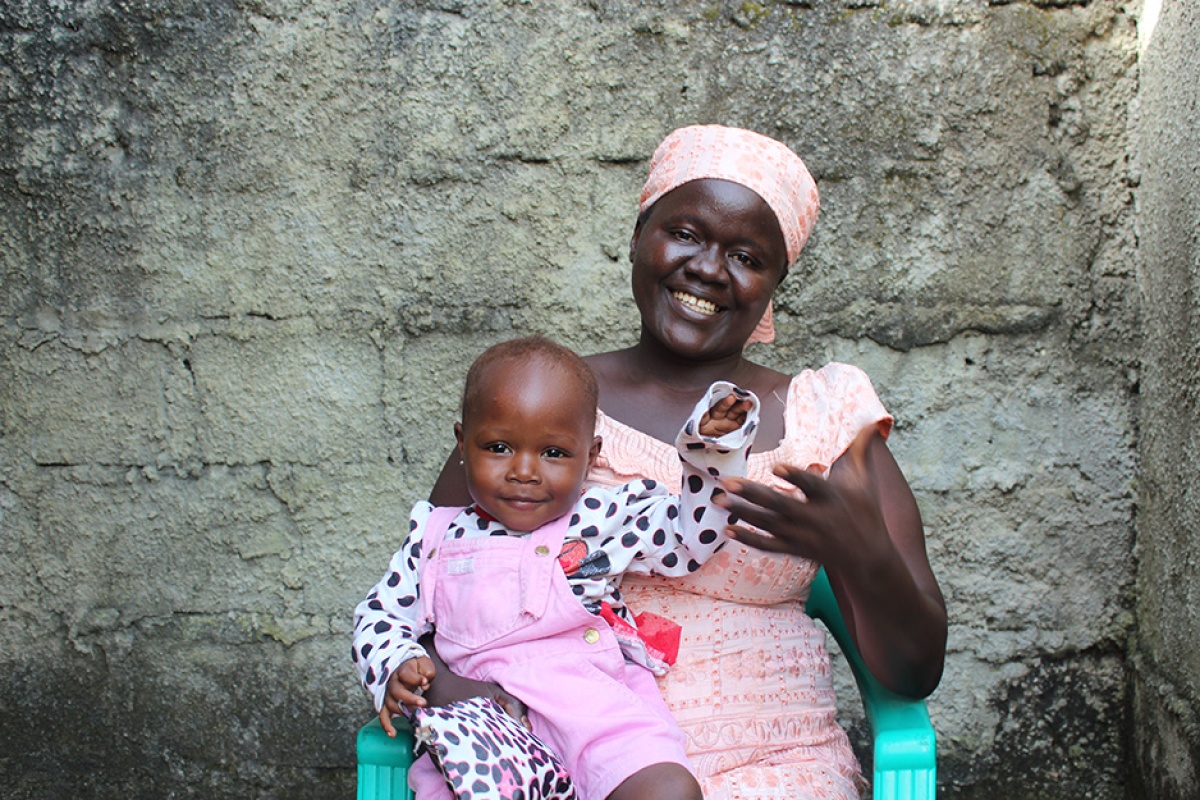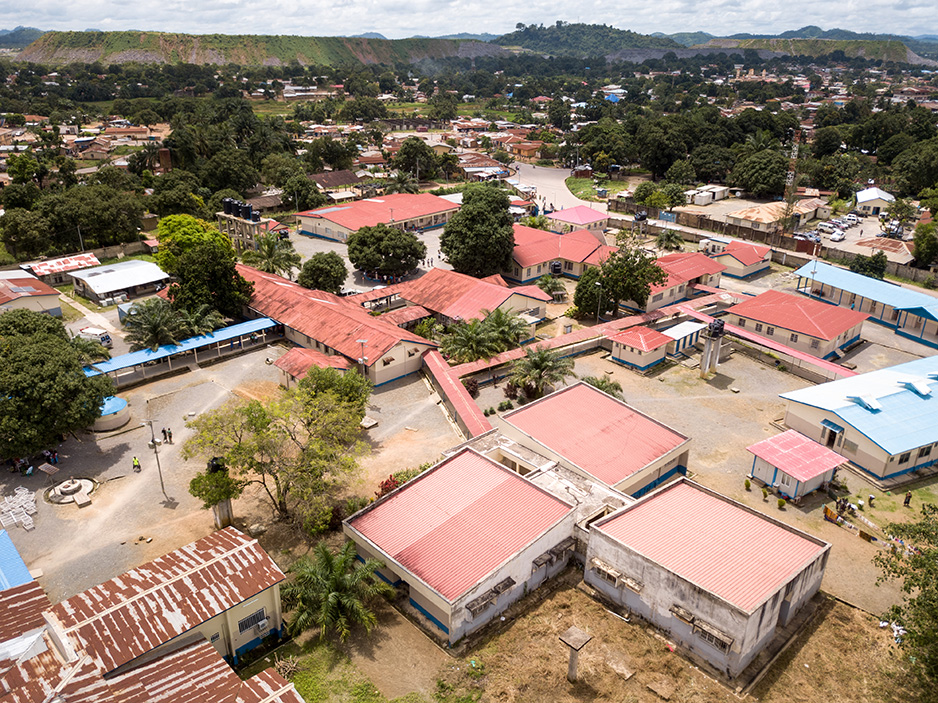How an HIV Diagnosis Inspired Friendship in Sierra Leone
Posted on Dec 20, 2018

Upon learning she was pregnant in early 2017, Aminata Kebbie couldn’t stop smiling as she walked around her village in rural Kono District, Sierra Leone. Her joy turned to concern just a few months later when the 28-year-old felt something was off. Although it was her first pregnancy, Kebbie knew the way she felt wasn’t usual. She would awake in the night freezing cold, covered in sweat, and gasping for air.
“I was panting all the time,” she recalls. “The tiredness made my whole body feel heavy, like a stone.”
With each day that passed, Kebbie lost weight and her lethargy increased until even getting out of bed or leaving the house became a mountainous task. She had no money to see a doctor and, an orphan since she was a teenager, had no one she could turn to for financial support.
Ultimately, Aminata would get better and deliver a healthy baby girl, thanks to two things she couldn’t have imagined back then. First, free high-quality health care. And second, a network of neighbors and strangers who are part of the well-oiled machine that is PIH’s maternal and community-based care in Kono District.
The tiniest glimmer of hope first appeared in Kebbie’s fifth month of pregnancy. Kumba Soyama, a PIH community health worker, noticed that her neighbor had been staying in her house more than usual. When Soyama visited, she saw that Kebbie was clearly sick, and told her to get a checkup at the PIH-supported Koidu Government Hospital.
“She insisted everything was free for pregnant women,” says Kebbie. “I couldn’t believe it.”

Soyama accompanied Kebbie to the Hospital, offered moral support during the consultation, and encouraged her to agree to further medical tests after the nurse shared tough news. The new mother had HIV.
Kebbie felt devastated. After discussing it with doctors, she understood that her HIV could be suppressed through antiretroviral therapy, but she worried that friends and neighbors would treat her badly if they found out, and that her baby might not be strong.
Here again, her neighbor played a pivotal role. “Kumba told me something: She was also HIV positive. I was so shocked,” says Kebbie.
According to UNAIDS, there were 67,000 Sierra Leoneans living with HIV in 2016, 26 percent of whom had access to ART. And among pregnant women living with HIV, 87 percent were on treatment to prevent transmission of the virus to their children.
As in other countries where PIH works, clinicians in Sierra Leone incorporate HIV testing into the normal flow of outpatient care. By the end of 2018, staff will have conducted 17,800 HIV tests across PIH-supported clinics and hospitals. As a result, there are now 1,630 HIV patients enrolled in HIV care.
Among them are Kebbie and Soyama. Knowing their common bond, the two women became close friends, supporting one another wherever possible. Kebbie felt inspired by Soyama to do everything she could to stay strong and healthy. “Kumba visited me almost every day,” she says.
In her seventh month of pregnancy, Kebbie’s biggest challenge was adhering to her medication. Though PIH made sure she had enough, and for free, she had a difficult time swallowing them. HIV medications are notoriously harsh on the stomach in the early stages of treatment, and especially difficult to tolerate when hungry—as Kebbie often was.
Unknown to Kebbie, Soyama had reached out to a colleague for help, namely Mohammed Bundu, a member of PIH’s Acute Needs Program team, which provides qualifying patients with financial support for food, housing, and transportation. Half of HIV/TB patients in Sierra Leone receive financial assistance through the program. After familiarizing himself with her case, Bundu followed up with Kebbie to see how PIH could ensure her recovery.
Kebbie remembers their first meeting. “I was sitting on my veranda, as I always did in the afternoon. My baby had grown quite large in my belly by that point, and the midday sun made me very hot,” she says. “Mohammed parked his bike near my house and came over to sit next to me. He asked me a series of questions, which I answered happily.”
A few days later, Bundu returned with 200,000 leones, around $25, so that she could buy groceries, prepare meals, and have a full stomach with which to take her pills.
“I couldn’t believe my eyes,” remembers Kebbie. “It was then that I knew everything was going to be OK.”
And it was. Kebbie’s health continually improved, and her baby daughter, Susan, was delivered at Koidu Government Hospital safely last June. Further still, initial tests reveal that Susan does not have HIV. Mother and daughter now have a small, but thriving, business selling cakes and breads around town.
All that’s left, in Kebbie’s mind, is to pay the kindness she received forward. She’d like to help others the way Soyama and Bundu helped her.
“Without their help, I’m not sure I would have regained my strength,” she says. “No one should suffer at home until they can’t stand up anymore. Everyone deserves to be healthy.”

